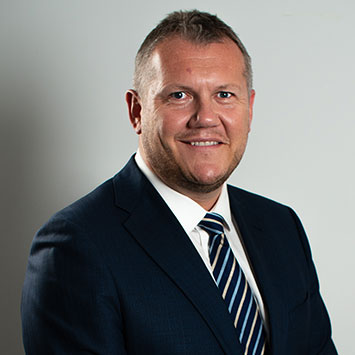How can we help?
Get in touch

Our experts tackle a variety of topics in their own words
It may be getting colder outside, but frozen shoulder sadly affects many people no matter what the weather! Frozen shoulder is a common, painful and disabling condition commonly appearing in patients aged between 40 to 60 years. For the majority of patients the cause of the frozen shoulder is unknown, although it can be caused by a fall, trauma, fracture, or recent surgery and is more common in those suffering from diabetes.
Phases of frozen shoulder
In a ‘frozen shoulder’ the jacket lining (otherwise known as the capsule) becomes inflamed which causes a great deal of pain when the shoulder is moved. In this first phase of a frozen shoulder, pain is more predominant than stiffness. Gradually over the course of months the capsule becomes stiffer and patients enter the second phase where they can’t move their shoulder as much as they used to and stiffness becomes more predominant than pain. Eventually the patient enters the final ‘thawing’ or recovery phase and movement in the shoulder gradually returns. Most patients achieve a full recovery although a small proportion of patients experience some mild residual symptoms. It can take on average 2 1/2 years for the condition to resolve, during which time the patient can be significantly debilitated by pain and stiffness in the shoulder, consequently limiting their ability to perform their daily activities, work and recreation. Patients who suffer from diabetes or who have developed a frozen shoulder after a trauma or surgery often take longer to recover.
Diagnosis
It is important to get a correct diagnosis and a shoulder specialist will be able to exclude other causes of pain and stiffness such as arthritis. A simple x–ray can help exclude many other conditions and help confirm the correct diagnosis of frozen shoulder.
Treatment
Frozen shoulder is often a condition that patients have managed themselves for a period of time using over-the-counter painkillers and visiting therapists. When significant improvement is not experienced the patient often consults their GP who may refer the patient to an Orthopaedic Shoulder Specialist for further assessment and treatment.
The treatment strategy for this condition depends on which stage of frozen shoulder the patient is in. In the early painful ‘freezing’ phase the emphasis is on pain control. Painkillers and anti-inflammatories are usually commenced in the first instance. An injection of steroid into the shoulder joint (intra-articular injection) is also often used to give pain control. During the early ‘freezing’ phase, physiotherapy exercises are often tolerated by the patient due to the pain. However, when the shoulder enters the ‘freezing’ stiff phase, and the pain has subsided, physiotherapy with stretching exercises can be commenced and may be of benefit.
If these methods fail to improve the symptoms quickly enough for the patient then there are other treatment options available. Manipulation Under Anaesthetic (MUA) is a procedure performed as a day case operation where the surgeon manipulates the shoulder to break down the stiff tissue and improve the range of motion. Another option is a keyhole procedure called Arthroscopic Capsular Release which is performed as a day case procedure where the surgeon looks inside the shoulder with a camera, assesses the anatomy and then carefully releases all the stiff capsule tissue so the patient finishes the procedure with an excellent range of motion. Patients then have physiotherapy after the operation to help maintain the rapid improvements gained from the procedure.
Ultimately a Frozen Shoulder will get better of its own accord, but it can take a long time, cause a great amount of suffering and interference to work and recreational activity. Therefore, it is recommended to seek a specialist opinion to confirm the correct diagnosis and discuss the pros and cons of all the various treatment options to pick the best treatment for the patient’s needs and expectations.

Consultant Orthopaedic Surgeon
Mr Tony Corner is a Consultant Orthopaedic Surgeon whose clinical practice is dedicated to treating patients with problems of the shoulder, elbow and upper limb including impingement, rotator cuff tears, dislocations, frozen shoulder, arthritis, fractures, tendon and sports related injuries. He uses the latest techniques to treat these conditions and works closely with the patient’s therapist to ensure the best possible outcome and optimum recovery.
He qualified from St. Mary’s Hospital, Imperial College London and later underwent specialist Orthopaedic training in London (North West Thames Rotation). He subsequently underwent a one year UK advanced training fellowship in complex upper limb reconstruction of the shoulder, elbow, hand and wrist. In 2009 he was awarded the prestigious British Orthopaedic Association European Travelling Fellowship whereby he gained invaluable experience and training from 4 of the world’s leading shoulder surgeons in France, Italy and Switzerland. Following advanced training Mr Corner was appointed as a Consultant Orthopaedic Surgeon at West Hertfordshire Hospitals NHS Trust (Watford, St Albans and Hemel Hempstead Hospitals)in 2010.
Mr Tony Corner is a faculty member for courses held nationally to teach techniques of arthroscopic shoulder reconstructive surgery to other orthopaedic consultants and higher trainees. He has been an invited lecturer on the Mastership course in Orthopaedics held at the University of Warwick Medical School. Mr Corner is also an Editorial Reviewer for the ‘Shoulder & Elbow’ scientific journal.